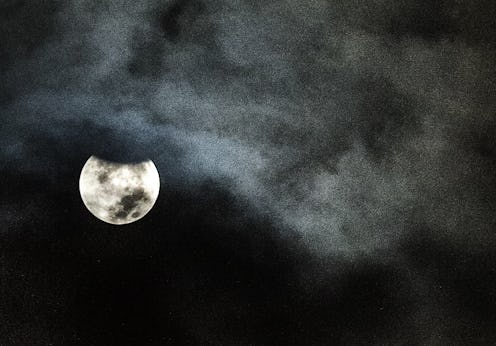If you're a fan of astronomy, you've likely noticed that there have been a ton of awesome moments in the skies throughout 2016. More are on the way, too — in particular, a penumbral lunar eclipse is coming up on Sept. 16. It's a sight that has a lot of people excited, so you might be wondering where the penumbral lunar eclipse will be visible. Even though amazing things in the solar system are usually available for us to livestream from the comfort of our own living rooms, many people enjoy stepping out into nature and viewing things for themselves — so where do you have to be in order to witness this one in action?
Unfortunately, according to Time and Date, people based in North America like myself are unlikely to have an easy time viewing the penumbral lunar eclipse. In fact, it appears that the penumbral lunar eclipse will only be visible to people in Europe, Asia, Australia, and Africa. Based on the positions of the planets in the sky, people based in North and South America are pretty much out of luck.
Just what exactly are we missing? According to Space.com, a penumbral lunar eclipse occurs when the moon passes through the outer edge of the Earth's shadow in a celestial event that may or may not be visible to the naked eye, regardless of where in the world you're located. Unlike a total lunar eclipse, where the moon passes through the central shadow of the Earth and often turns a blood red color (hence the term "blood moon"), a penumbral lunar eclipse is when the sunlight is blocked by only the Earth's outer shadow, formally called the "penumbra."
In fact, as Noah Petro, a research scientist at the Goddard Space Flight Center in Maryland, explained over at Space.com, "If you didn't know a penumbral eclipse was going on, you might not even notice it. It's somewhat challenging for people who don't spend all of their time thinking about eclipses to actually picture." Apparently, if you are able to view it, it'll most likely look like a series of shadows and shading across the moon.
It seems like those of us in North America aren't necessarily missing out on a lot, but I think it's totally worth streaming anyway. After all, nature is all around us, and what's more fascinating and beautiful than space, our last, final frontier?
Images: Giphy
